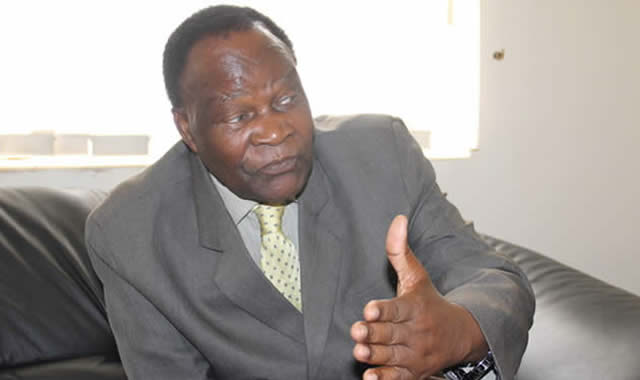Editorial Comment: Finally, city remembers eastern suburbs

 PEOPLE in eastern Harare are finally getting some water as Morton Jaffrey Waterworks boosts its output from 450 megalitres a day to 522Ml/day and Harare City Council has decided to allocate this extra water to some of its abandoned suburbs. But while the rehabilitation, paid for through a US$144 million loan from China EximBank, is producing results as long-delayed maintenance and upgrading is finally being done, and the city council at least has its priorities right in allocating more water to the eastern suburbs, there is obviously some way still to go.
PEOPLE in eastern Harare are finally getting some water as Morton Jaffrey Waterworks boosts its output from 450 megalitres a day to 522Ml/day and Harare City Council has decided to allocate this extra water to some of its abandoned suburbs. But while the rehabilitation, paid for through a US$144 million loan from China EximBank, is producing results as long-delayed maintenance and upgrading is finally being done, and the city council at least has its priorities right in allocating more water to the eastern suburbs, there is obviously some way still to go.
Speaking during a tour of the waterworks by city councillors last week, Town Clerk Dr Tendai Mahachi announced that the city hoped to supply Mabvuku and Tafara with water 24 hours a day for at least five days a week.
Others living in the eastern suburbs who used to get nothing are now getting water over the weekends and some of those who used to get water at weekends are now receiving supplies four days a week. This improvement is welcome, although there are still huge swathes in the abandoned eastern third of the city where taps remain dry and no municipal water has been seen for months so there are no grounds for any smugness down at Town House. We would agree that Mabvuku and Tafara are a priority for full water supplies; high density suburbs without running water are obviously a serious health risk.
But the rest of the eastern suburbs should not remain without. People have coped in these areas with wells, boreholes and private deliveries, but the city council needs to realise that the water table has been falling and many wells and some boreholes have now run dry and private water companies have to charge more as they are forced by regulation to bring water in from further away.
We have criticised before the city council policy of abandoning some suburbs while ensuring that others receive full supplies 24 hours a day, seven days a week. Bulawayo, which has had to impose stringent water rationing for years because of a shortage of raw water in its dams, has a far better policy of ensuring that what is available is fairly shared by all suburbs.
It would not seem to be impossible for Harare to do the same. We suspect that with the extra supplies now available any rationing in Harare would be fairly light, with everyone getting water at least six days a week.
An education campaign to teach all in Harare how to use water wisely might see the end of rationing altogether. After all vast numbers in eastern Harare have had to learn over the years not to waste. If they are buying water they cannot afford to waste; if they are using a well they know that waste involves a lot of effort to hoist more buckets; if they are wealthy enough to have a borehole they have to buy more electricity to operate the pumps. Similar care in the rest of the city could well see consumption fall to below supply levels. The council can feel that the battle to supply Harare with adequate water is at last in the process of being won.
That Chinese loan, despite criticism of diversions to buy cars, is obviously also being used to buy needed equipment. The news that this new equipment is a lot more energy efficient is also welcome. The expected savings of US$500 000 a month will go a long way to ensuring that the distribution network is properly maintained with leaks and other waste reduced dramatically so that the full output of the waterworks can be delivered to taps.
But this is not the time to relax.
There is obviously still a long way to go and the council, with guaranteed supplies now rising, needs to change its water allocation policies and needs to start creating policies that will see its consumers helping to limit demand so that the improved supply can give all consumers a full supply 24 hours a day, seven days a week.









Comments